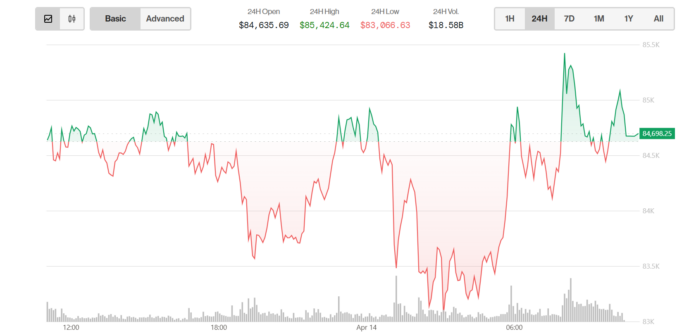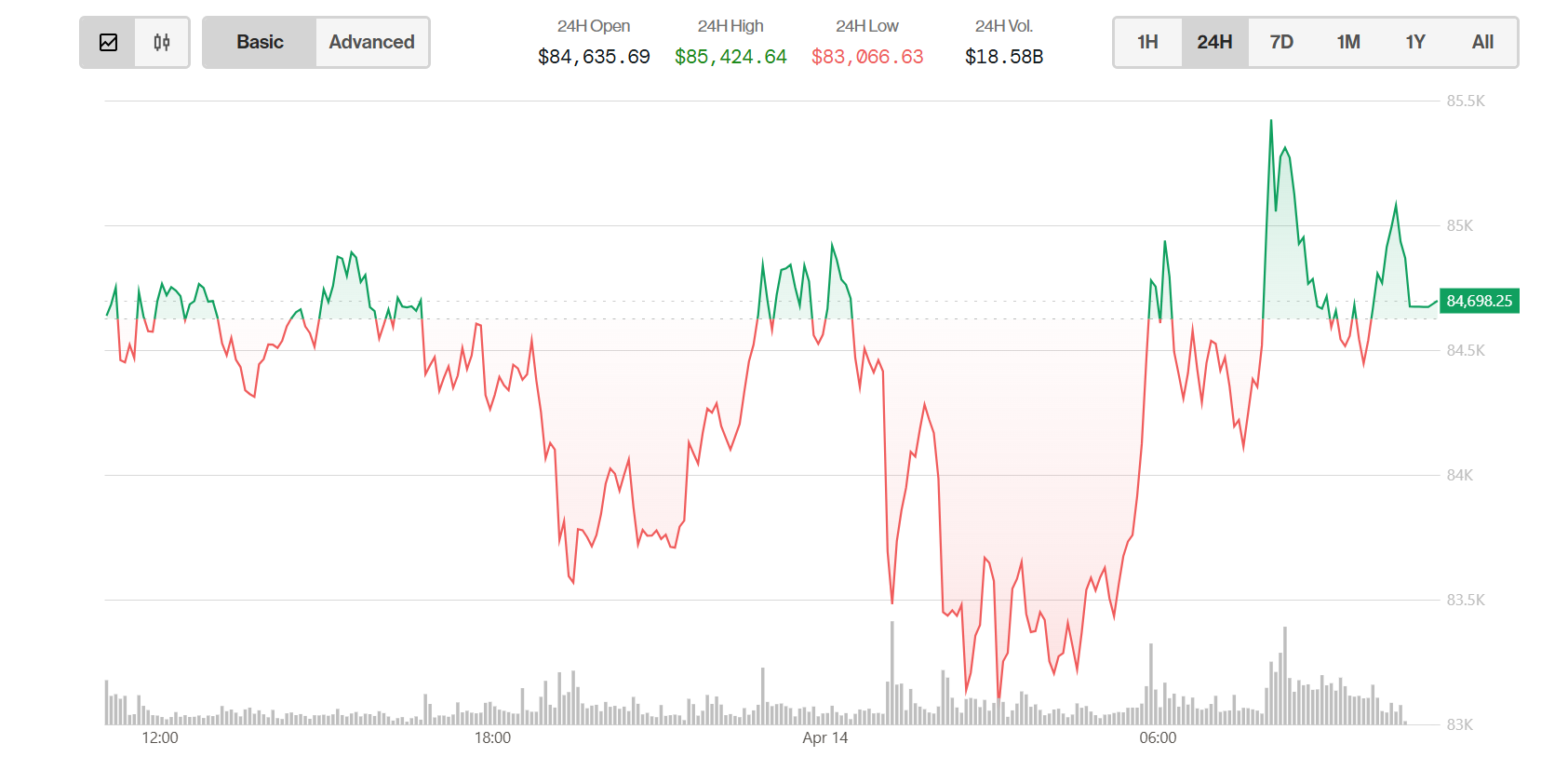The cryptocurrency market faces uncertainty as Trump administration’s conflicting messages on China tariffs spark inflation concerns and market volatility.
Weekend Volatility Hits Crypto Markets
Bitcoin dropped more than 2% on Sunday, falling to $83,482 during Asian trading hours as cryptocurrency markets struggled amid conflicting trade policy signals from Washington. The decline partially reversed the previous week’s gains and showed cryptocurrencies underperforming compared to traditional equity markets.
Ethereum, the second-largest cryptocurrency by market capitalization, dipped below the $1,600 mark, while other altcoins showed mixed performance according to data from CoinGecko.
The market turbulence followed a weekend of contradictory messaging from the Trump administration regarding potential tariffs on Chinese-manufactured electronics, including smartphones, semiconductors, and laptops.
Mixed Messages from Washington
Late Sunday, President Trump took to Truth Social to clarify his administration’s position, stating that while certain electronics were temporarily excluded from the new 10% “reciprocal” tariff program, those same products would remain subject to a separate 20% levy connected to national security and fentanyl enforcement concerns.
“NOBODY is getting ‘off the hook’ for the unfair trade balances, and non-monetary tariff barriers, that other countries have used against us, especially not China, which, by far, treats us the worst!” Trump wrote. “There was no tariff ‘exception’ announced on Friday.”
Adding to the confusion, Commerce Secretary Howard Lutnick stated over the weekend that additional sector-specific tariffs targeting electronics would be implemented within the next two months.
Divergent Market Reactions
While equity markets appeared to find some comfort in a perceived temporary reprieve—with Nasdaq 100 futures rising more than 1% and S&P 500 futures gaining 0.7% in early trading—cryptocurrency markets showed little of the same resilience.
This price action marks a reversal from the relative stability seen earlier last week when traders had positioned for upside following positive signals that inflation was beginning to trend downward.
Inflationary Concerns Resurface
The crypto market narrative has now been complicated by resurgent geopolitical risks and indications of slowing institutional flows into U.S.-listed cryptocurrency ETFs.
“Anticipation has dampened for an emergency rate cut ahead of the next Fed meeting in May (and for a rate cut before the June Fed meeting), with medium-term inflationary effects from the Trump administration tariffs now expected to keep Powell from cutting before June,” said Darren Chu, consulting analyst at BRN.
In essence, a higher-for-longer interest rate stance could further pressure risk assets as investors navigate the Federal Reserve’s hawkish positioning. Analysts are now monitoring key support levels near $81,000 for Bitcoin, with a break below potentially accelerating liquidations across leveraged positions.
Also Read: Bitcoin Rises to $85K, Then Falls to $83K Ahead of President Trump’s “Liberation Day” Announcement
Market Rollercoaster Continues
The past week has been particularly volatile for Bitcoin, which fell as low as $74,700 on Monday before recovering to around $83,800 by Friday—a 5.1% jump over 24 hours that essentially returned the cryptocurrency to where it began the week.
This rollercoaster pattern underscores the sensitivity of crypto markets to macroeconomic and political developments, particularly those affecting inflation expectations and Federal Reserve policy.
Looking Ahead
As markets digest the implications of potential tariffs and their inflationary impact, traders will be watching key technical levels and institutional fund flows for signs of the next directional move. The mixed signals from Washington continue to create an environment of uncertainty that could drive further volatility in cryptocurrency markets in the coming weeks.
Analysts remain divided on whether the recent meme coin surge represents a healthy diversification of risk or a concerning sign of speculative excess during a period of broader market instability.





